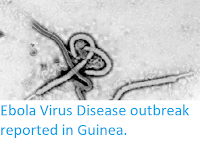Cases of Hepatitis E have been consistently reported in South Sudan since 2014, with recurrent outbreaks occurring in Bentiu, Rubkona County, Unity State (central-north part of South Sudan), where a camp for internally displaced persons is located. In 2021, the number Hepatitis E cases have risen significantly in the country, increasing from 564 reported during the three years 2018-2020, to 1143 suspected cases with five deaths in 2021 (as of 29 November), according to a press release issued by the World Health Organization on 23 December 2021. In the two years 2020-2021, a total of 1420 suspected cases were reported, of which 47 have been laboratory confirmed by polymerase chain reaction at the Uganda Virus Research Institute.
The outbreak is occurring in Unity State, with cases mainly being reported from Bentiu Internally Displaced People Camp. This led the Ministry of Health to declare a Hepatitis E outbreak in the camp in August 2021. A proportion of cases (323; 28.3%) has been reported from outside the camp, in Bentiu and Rubkona towns, suggesting ongoing transmission in the surrounding community. Males aged 15-44 years are being reported as the most affected group, followed by male children 1-4 years, and females aged 15-44 years. There are no cases currently hospitalised, with clinical management implemented in outpatient departments.
Bentiu Internally Displaced People Camp hosts over 107 000 people and is divided into five sectors. Hepatitis E cases are reported from all sectors, highlighting widespread transmission. Unity State, is also currently affected by a flood that has caused a massive displacement and the development of new internally displaced persons sites, which has resulted in 30 000 more internally displaced people being moved to the Bentiu camp.
Hepatitis E is caused by a single-stranded, nonenveloped, RNA Virus, and is usually a self-limiting infection, causing fever, nausea, loss of appetite, vomiting, jaundice, abdominal and joint pain and discolouration of the urine and stool, which typically passes within 2-6 weeks. However, in some cases the disease can cause acute liver failure (hepatitis) which is often fatal. Pregnant women are considered to be at particular risk from this disease, with a fatality rate of about 30%, compared to about 1% for the general population.
Hepatitis E is spread through faeces and contaminated water, and thrives in unsanitary and crowded conditions. This has become a problem in South Sudan since the country gained independence from Sudan in 2011, as a civil war broke out between different factions of the country's former independence movement, resulting in a conflict that lasted from 2013 till 2020, which resulted in about 400 000 deaths, and the displacement of about four million people from areas affected by the conflict; about 2.5 million of these now reside outside the country, with the remainder displaced internally, most of whom are residing in camps such as Bentiu.
See also...



Follow Sciency Thoughts on Facebook.
Follow Sciency Thoughts on Twitter.





